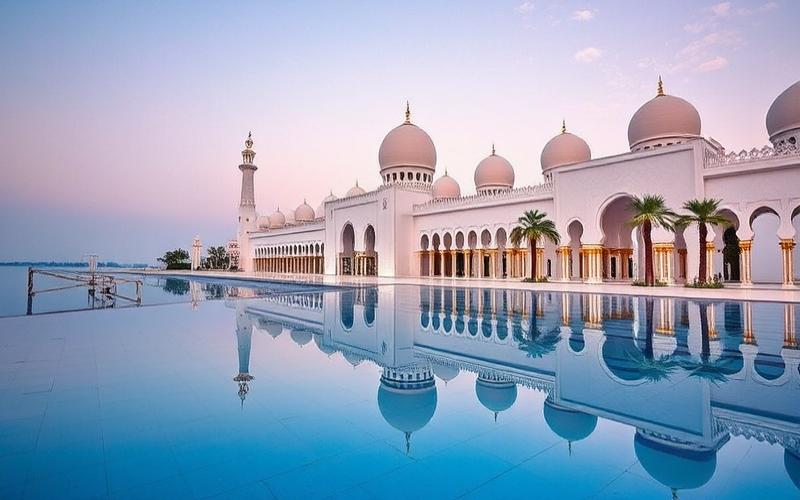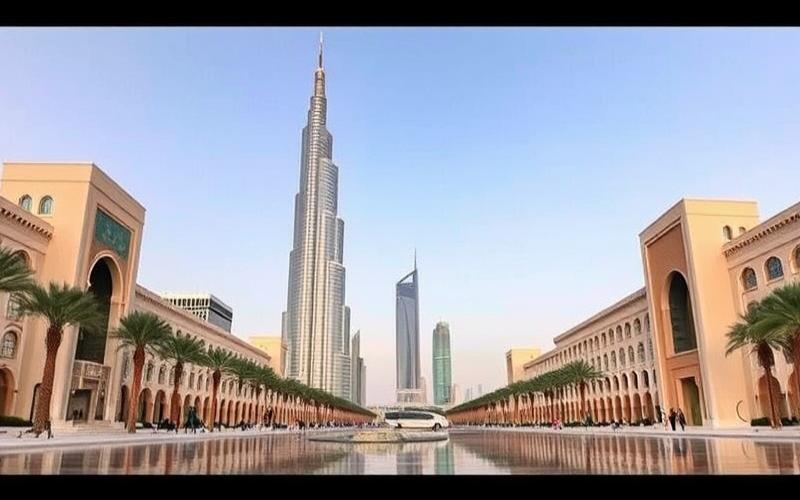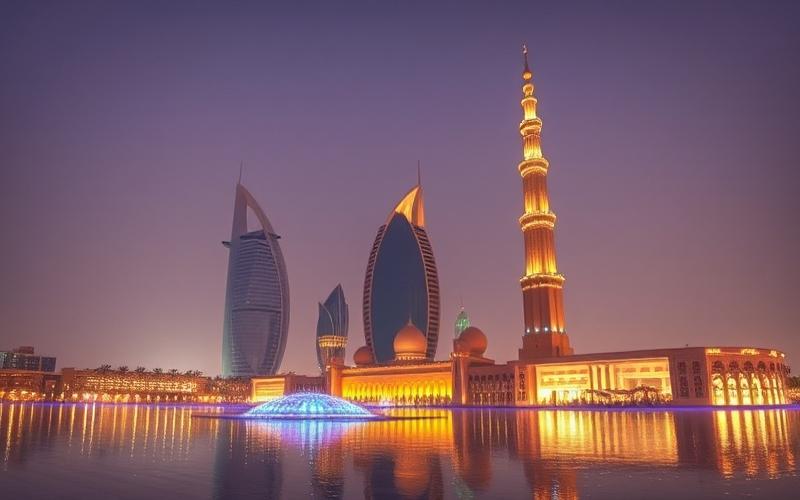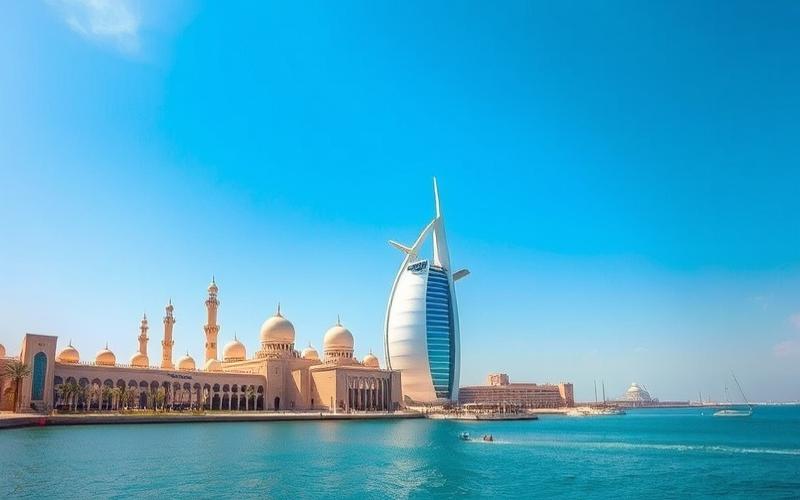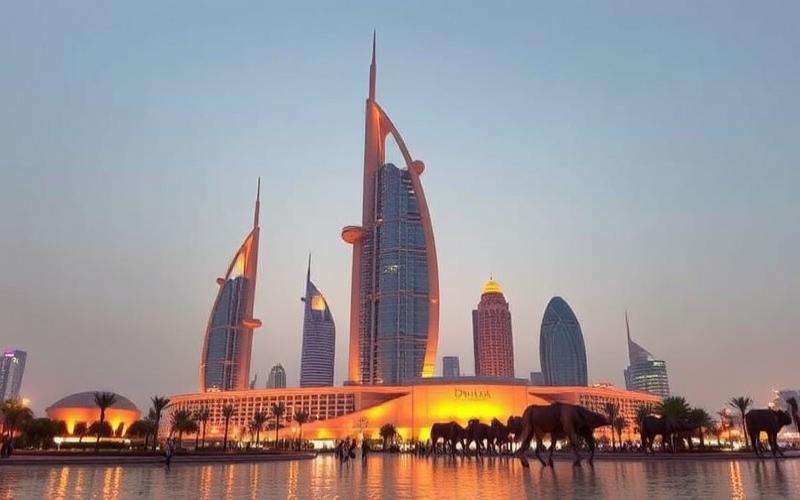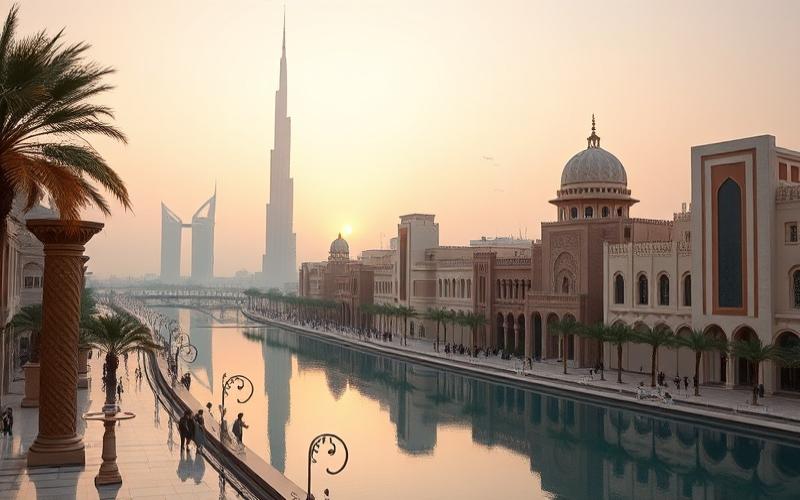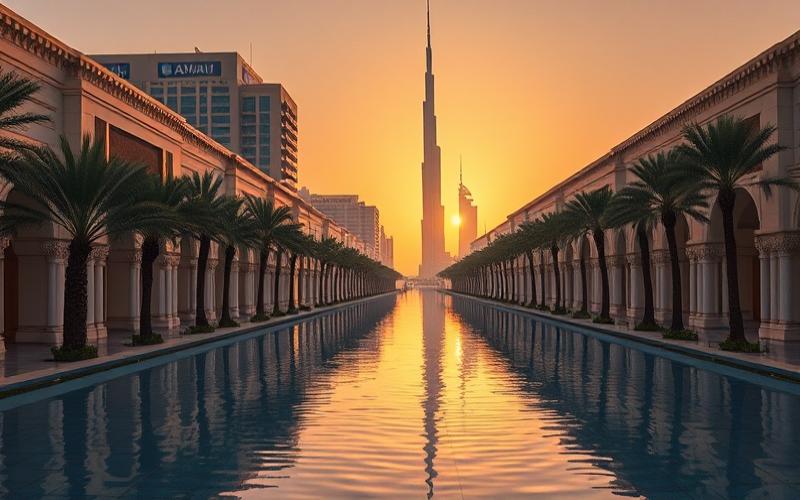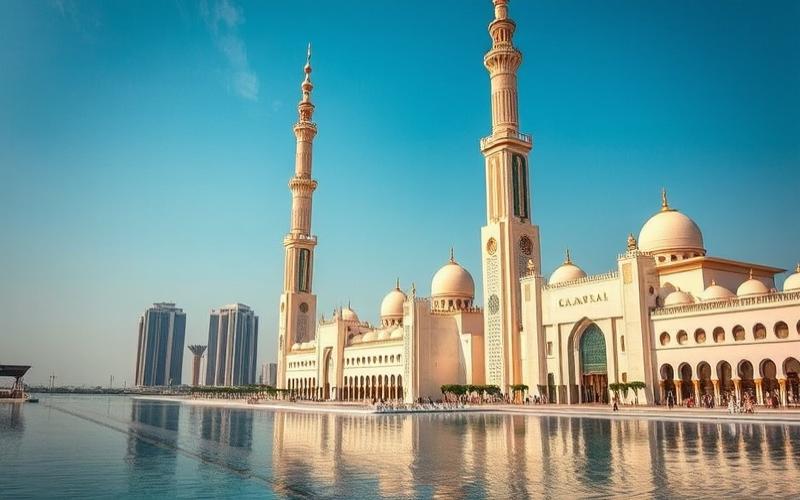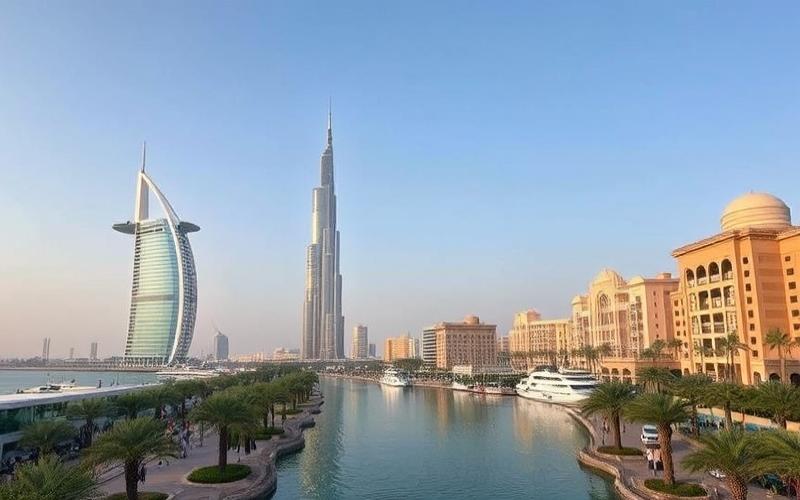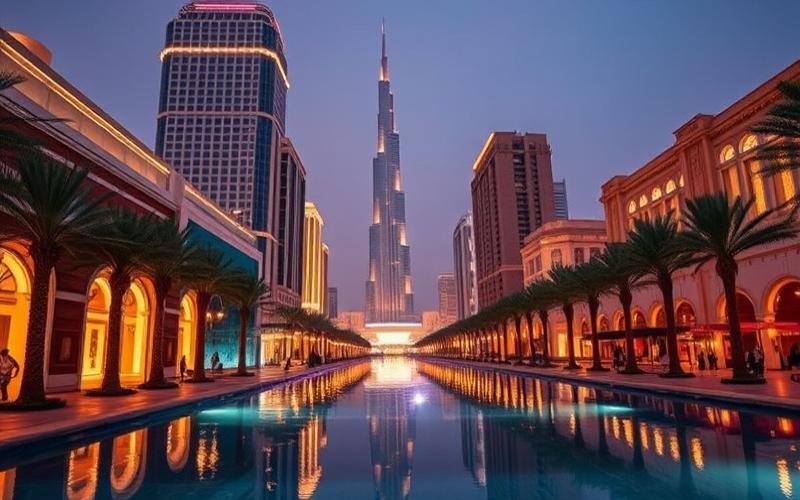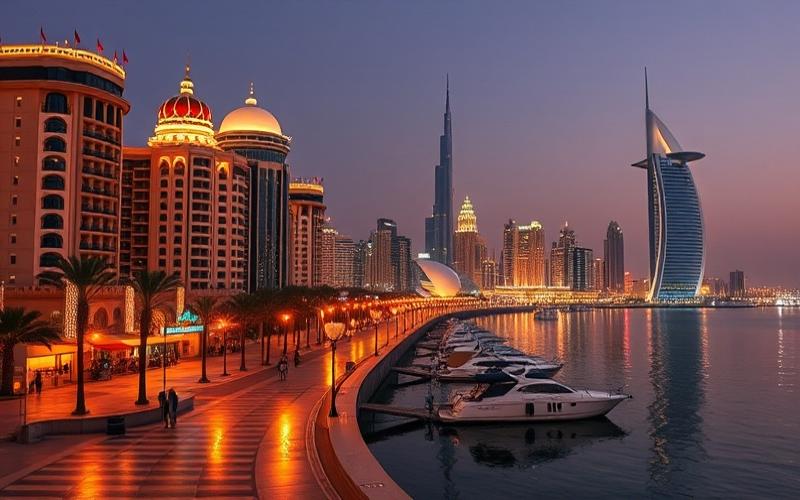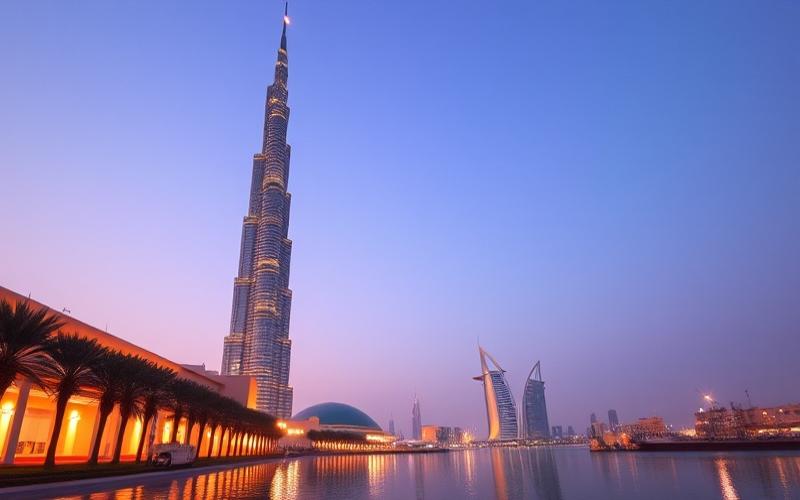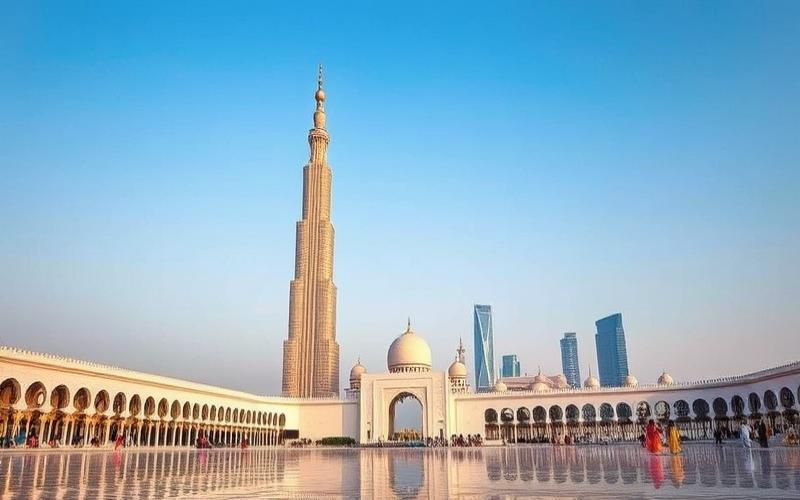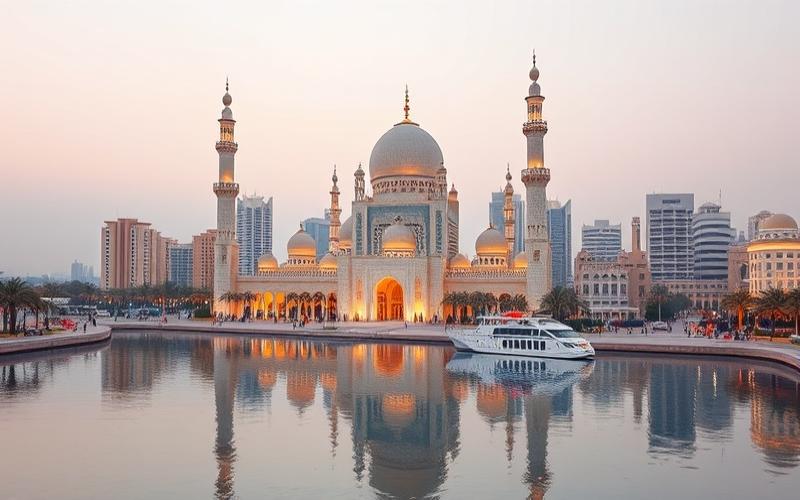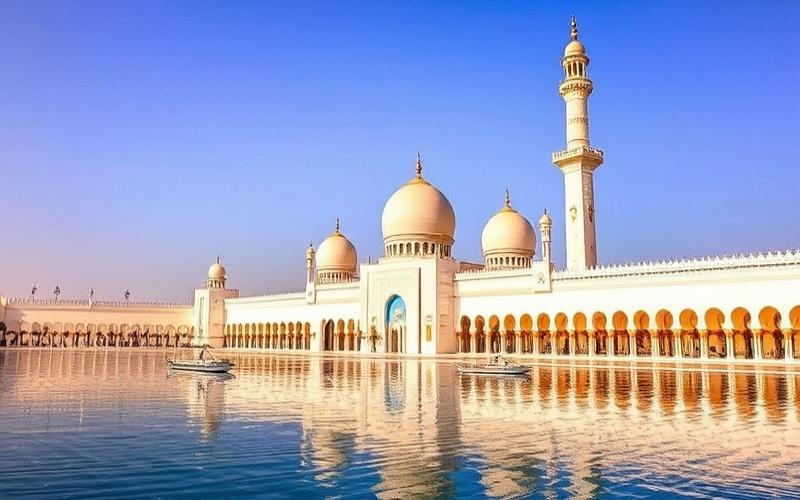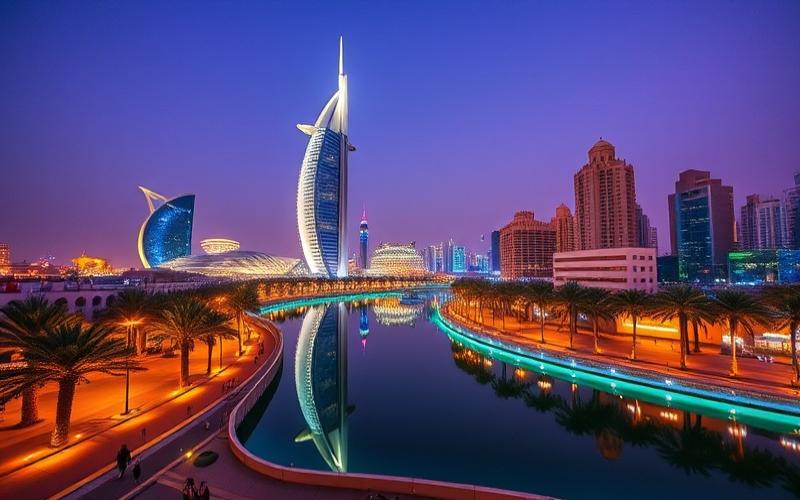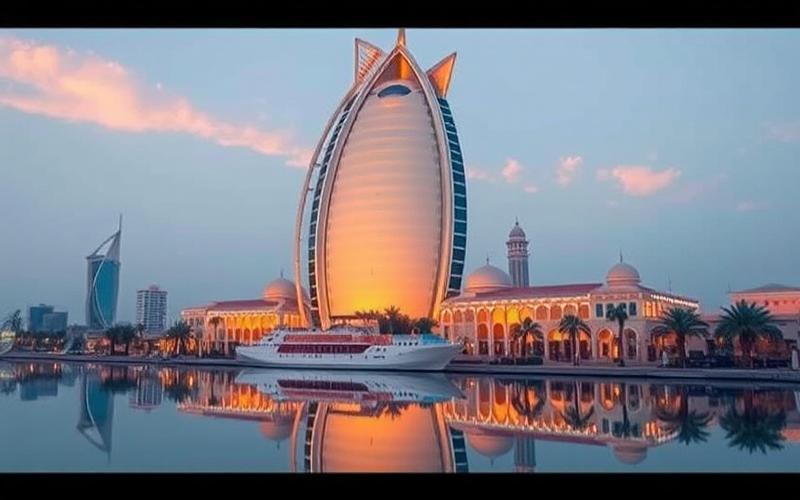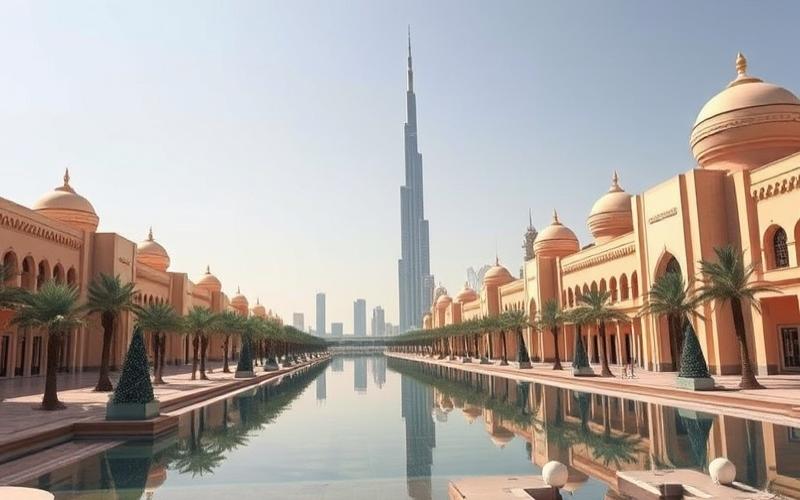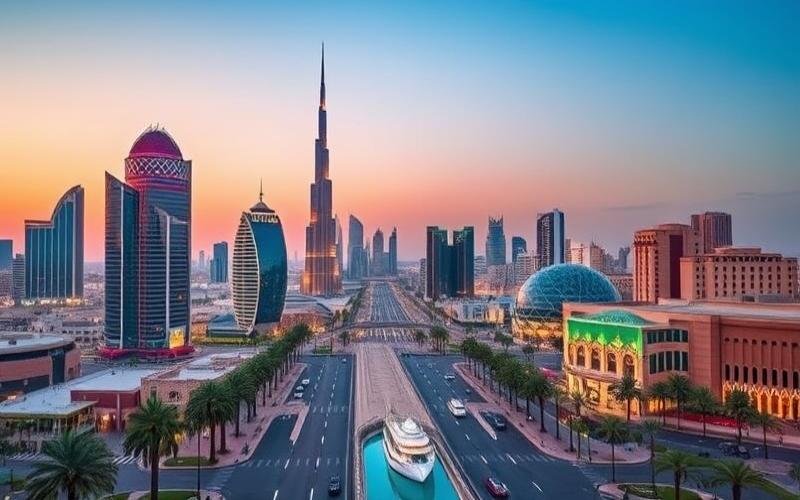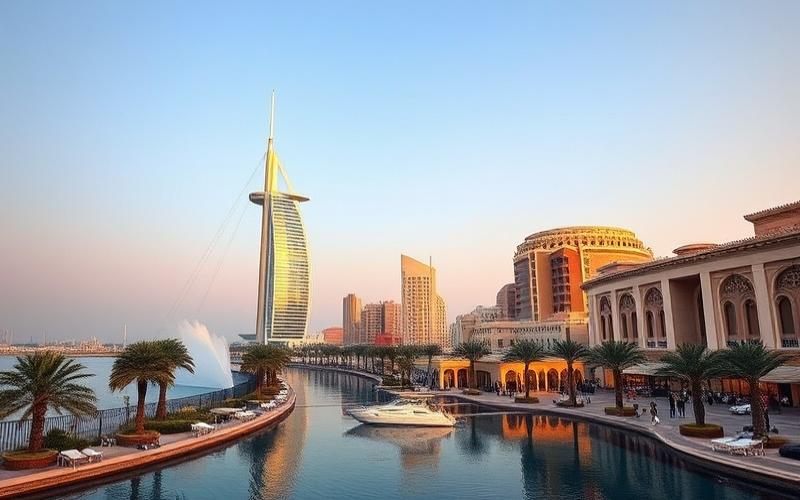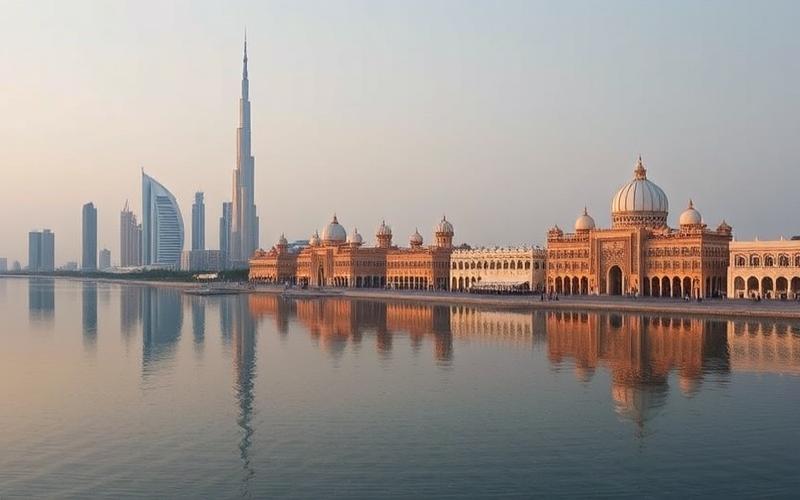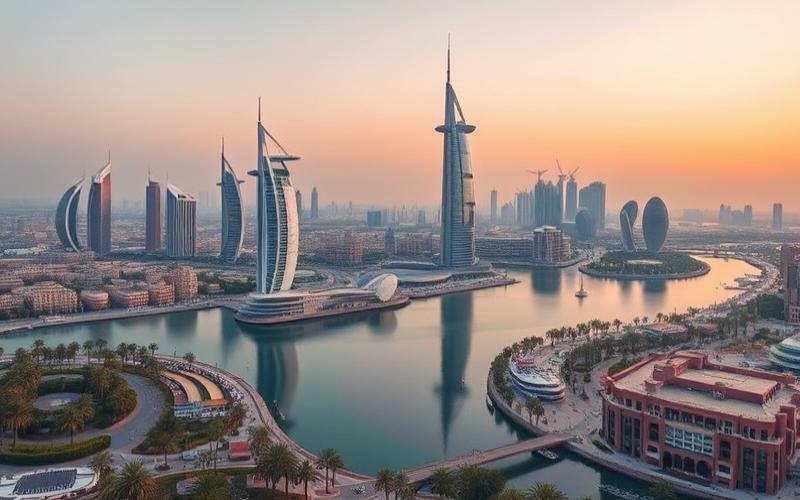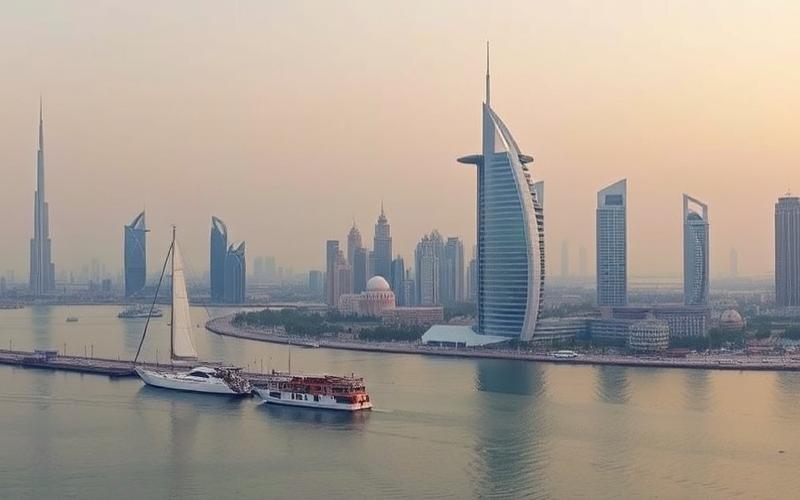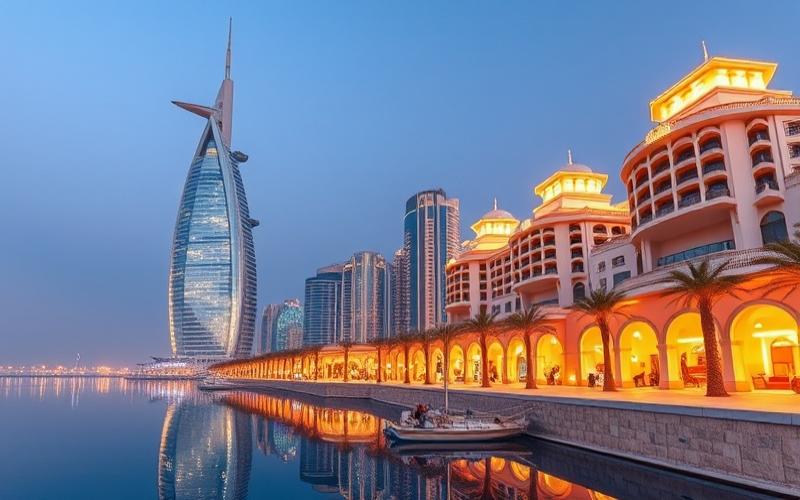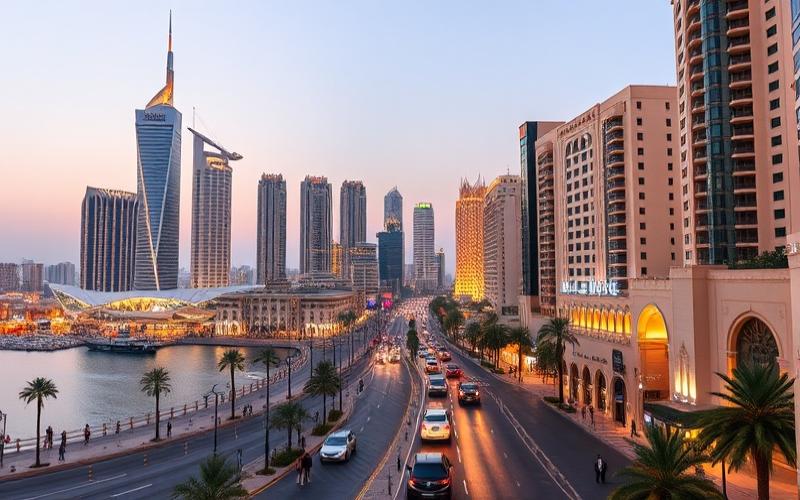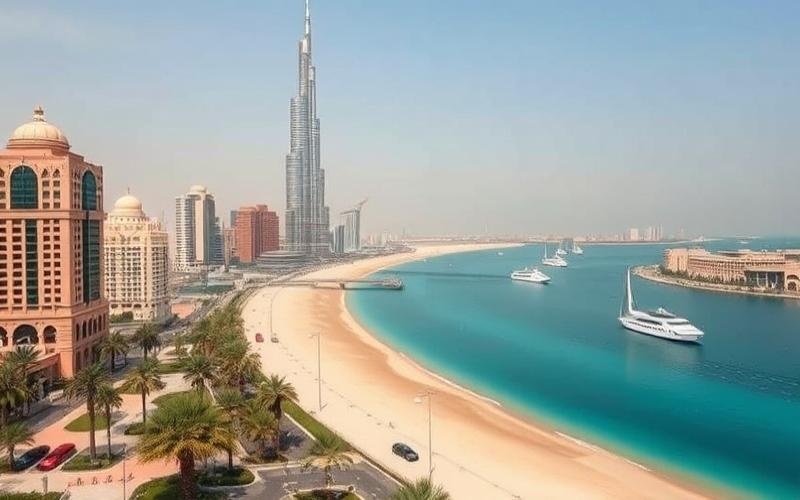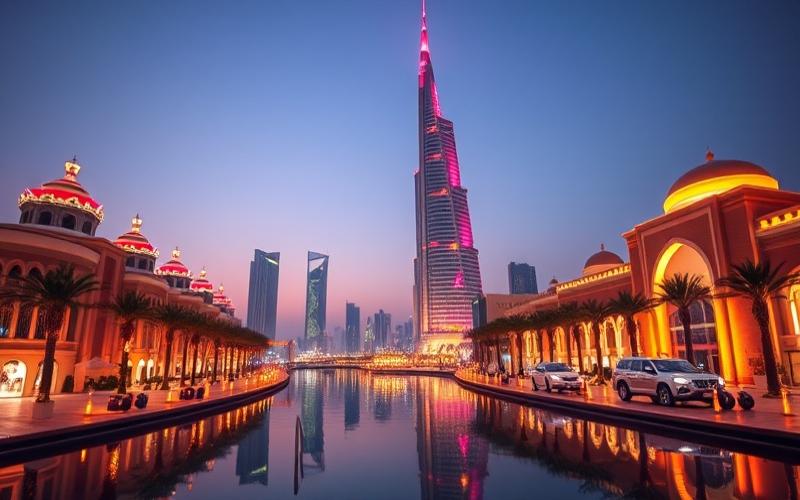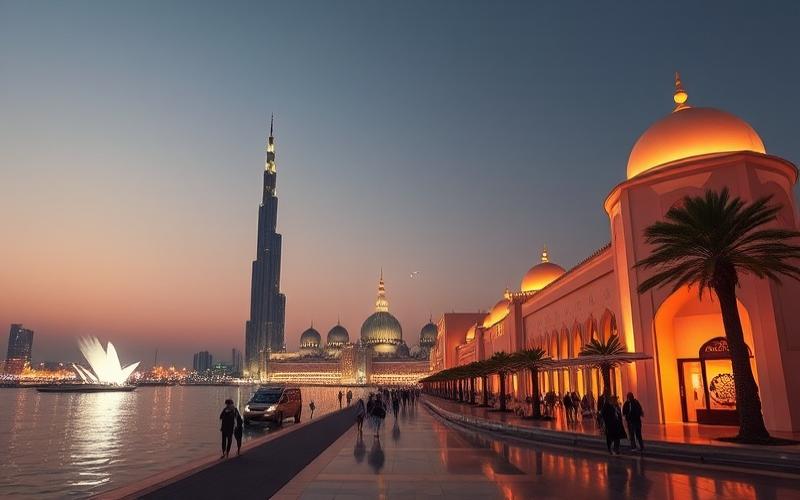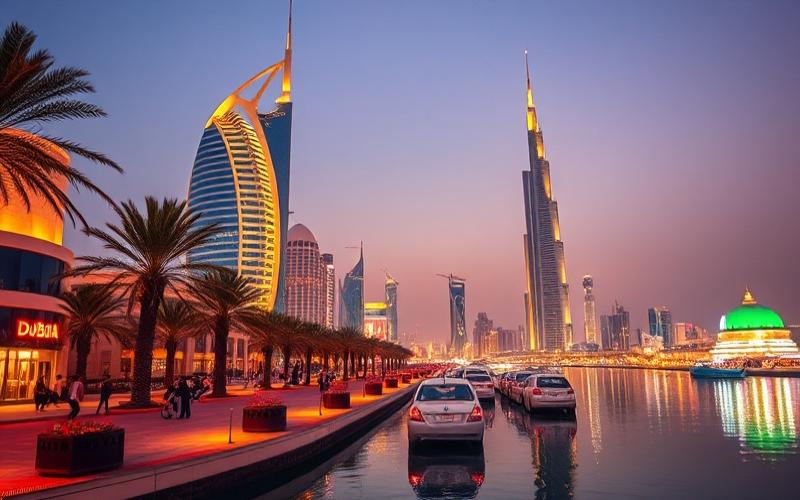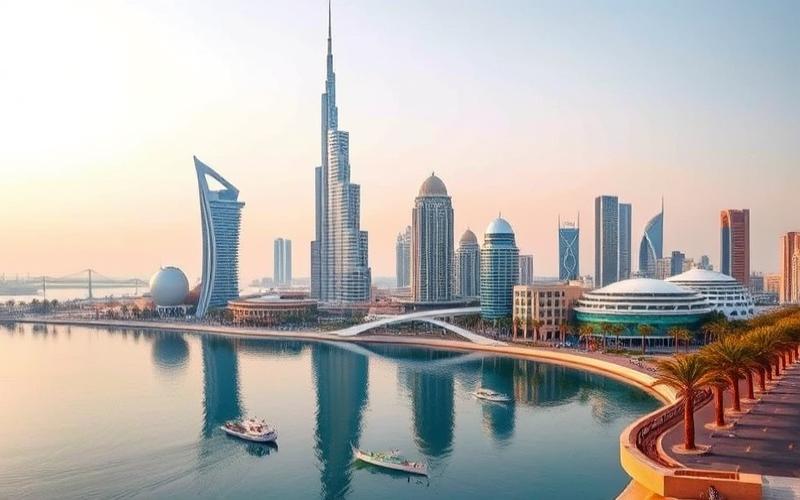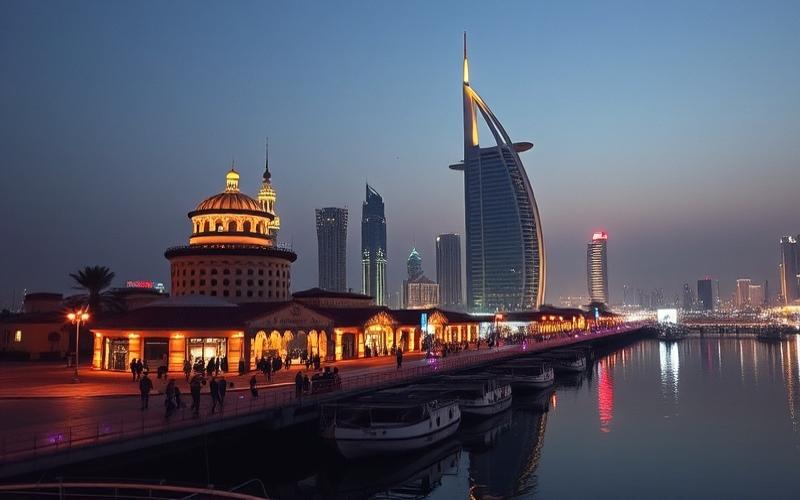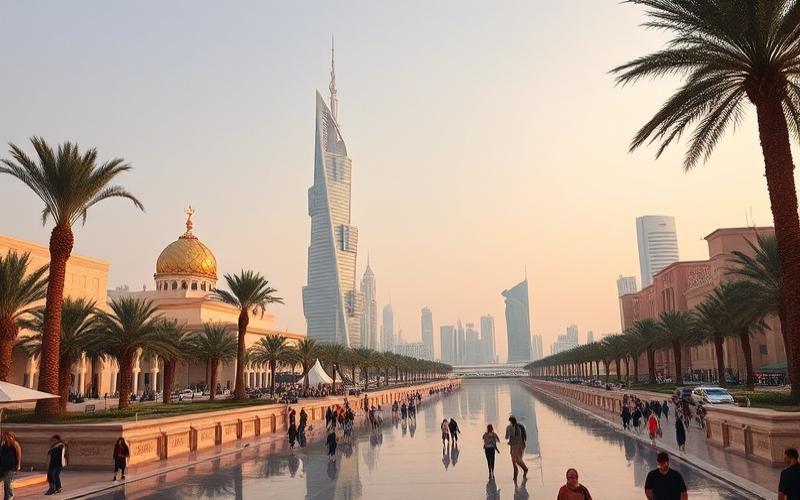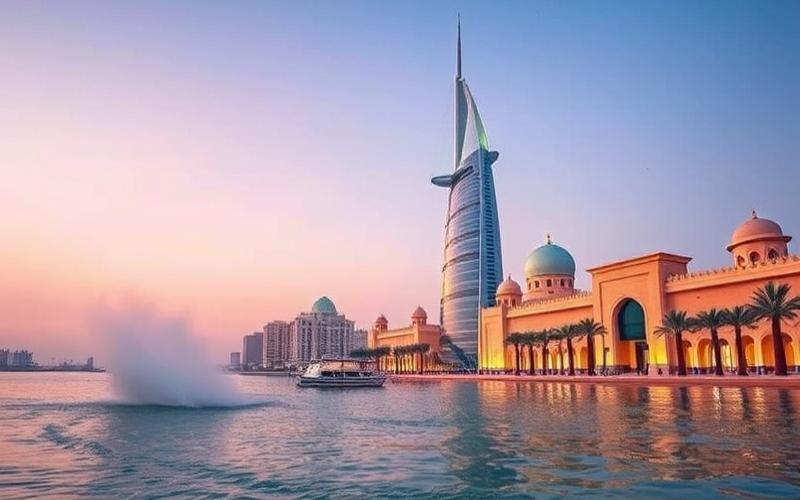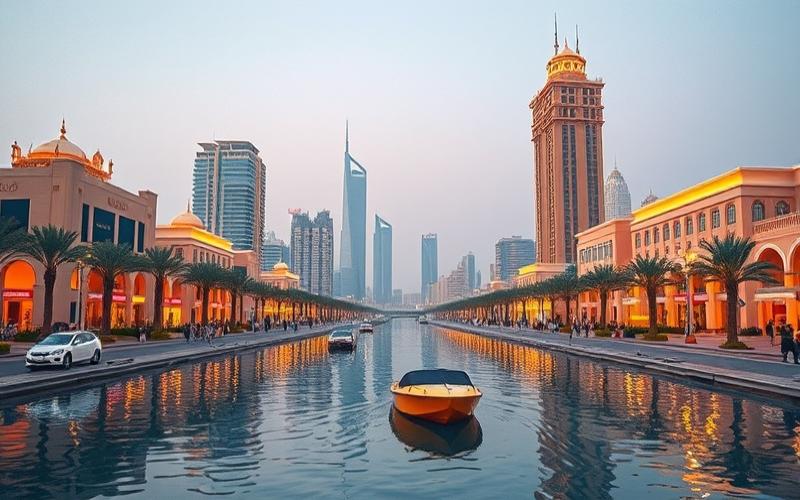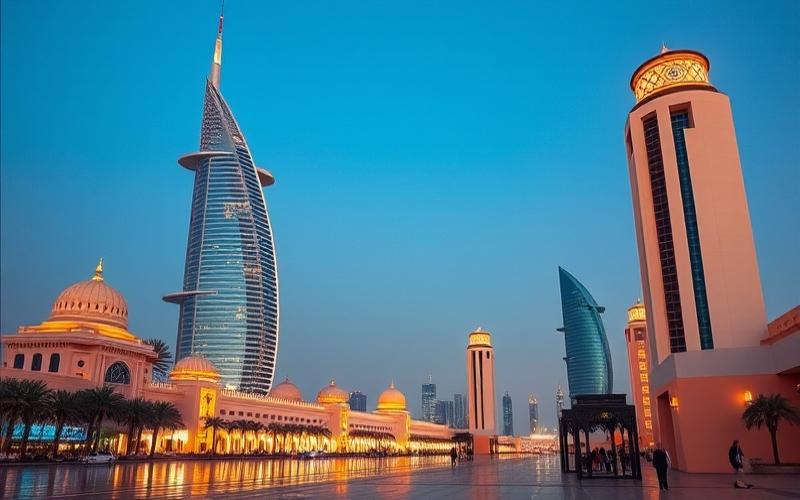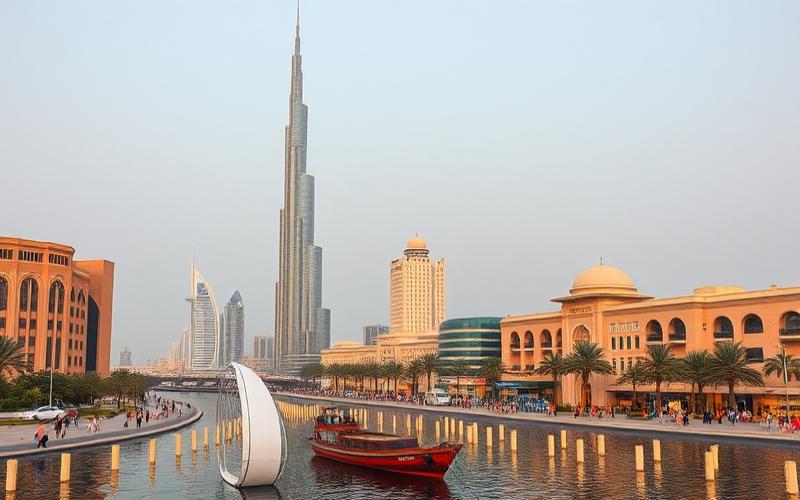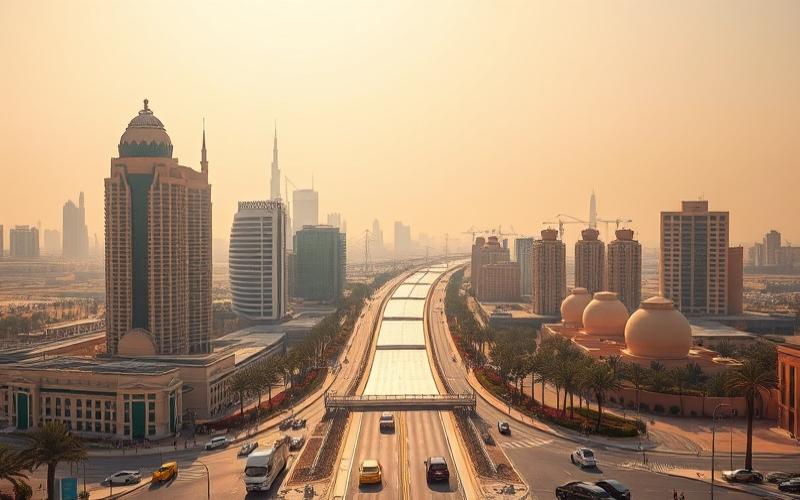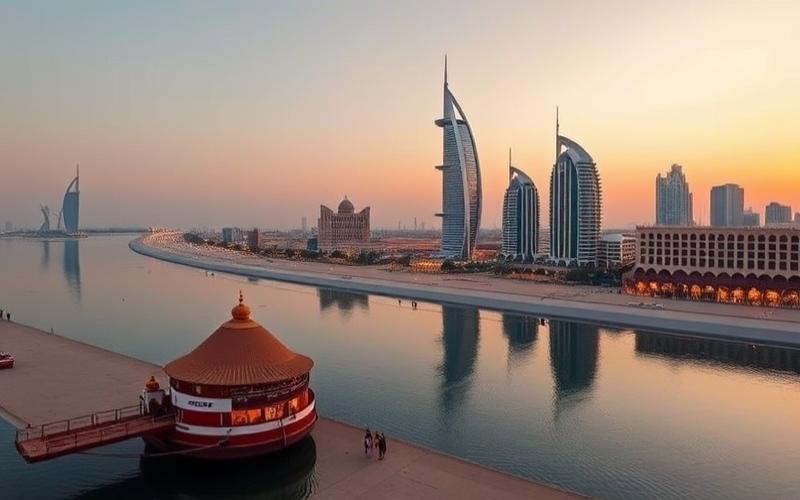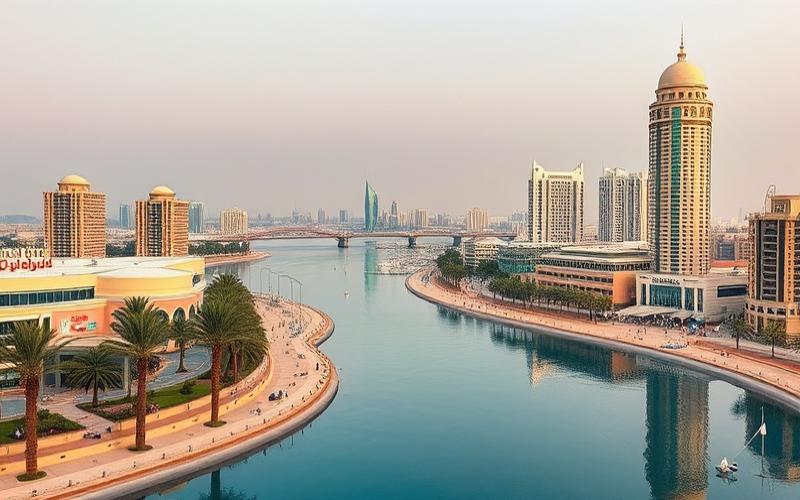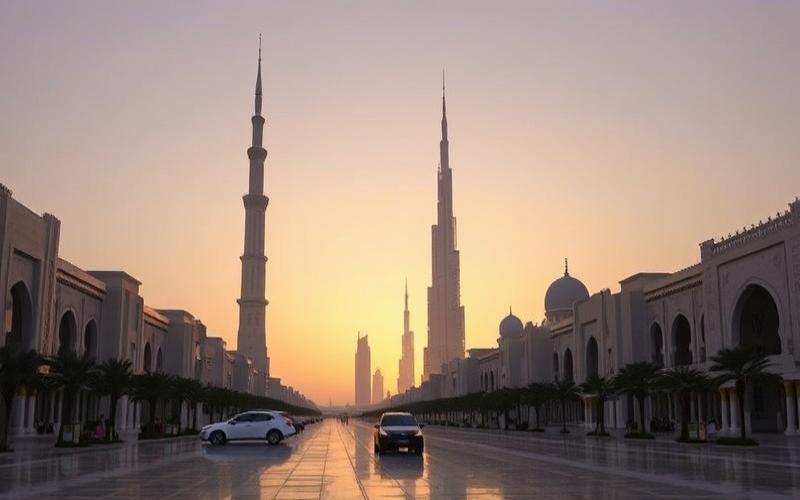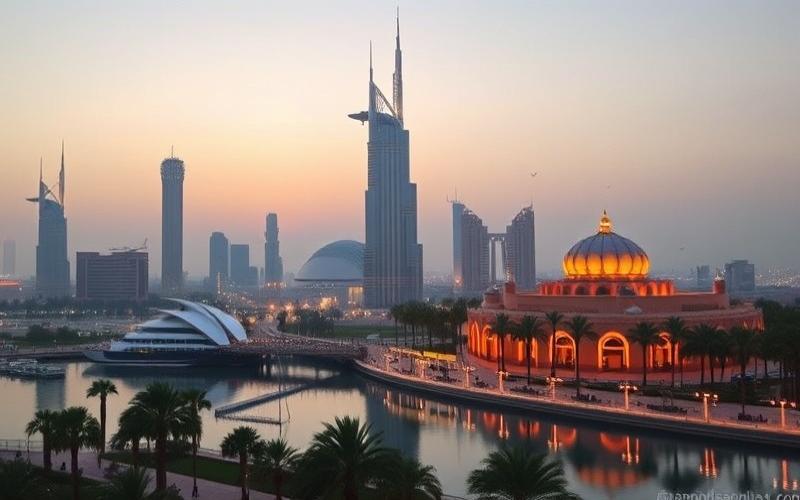
 Published on and written by Cyril Jarnias
Published on and written by Cyril Jarnias
Dubai, A City in Constant Evolution
Dubai, a city synonymous with innovation and dynamism, continues to surprise the world with its ever-evolving real estate market.
The Emergence of “Dark Stores”
Recently, a new phenomenon has taken root in this dazzling metropolis: “dark stores”. These distribution warehouses, invisible to the public but essential to the modern supply chain, are transforming the old perception of traditional real estate.
By leveraging the boom in e-commerce, these strategically placed spaces are propelling Dubai to the heart of a silent revolution where real estate is adapting to the relentless demands for speed and convenience.
Urban Impact and Questions Raised
These “ghost stores” also raise crucial questions regarding urban planning and their impact on residential neighborhoods, making this topic all the more relevant and captivating.
Good to Know:
“Dark stores” are warehouses dedicated exclusively to preparing online orders, with no physical customer service.
The Role of Dark Stores in Dubai’s Real Estate Landscape
Dark stores, these urban warehouses dedicated exclusively to preparing online orders without public access, are redefining Dubai’s real estate market and profoundly influencing urban planning and commercial infrastructure.
Transformation of Underutilized Urban Spaces
- Dark stores take advantage of vacant former commercial or industrial premises, often located in central or semi-peripheral neighborhoods.
- This repurposing revitalizes previously underutilized areas, creating new logistical hubs while limiting real estate vacancy.
- The rapid integration of dark stores responds to strong population growth (over 3.8 million inhabitants), with increased demand for fast delivery across the entire urban area.
| Impact | Description |
|---|---|
| Revitalization | Reuse of unused spaces to meet new logistical demand. |
| Land Pressure | Potential rent increases in certain strategic neighborhoods where dark stores are established. |
| Urban Evolution | Modification of the traditional commercial fabric and reorganization of neighborhood life. |
Opportunities for the Real Estate Sector
- Notable increase in land value in neighborhoods hosting these modern logistical platforms.
- Creation of a new rental segment dedicated to e-commerce operators seeking proximity to their urban customer base.
- Indirect stimulation of technological and sustainable development through integration into smart city initiatives (e.g., real estate digitalization, AI-optimized management).
Major Challenges
- Growing problems related to urban logistics: increased light commercial vehicle traffic causing congestion and nuisance in some residential sectors.
- Risk of commercial displacement to the detriment of traditional retail; gradual scarcity of commercial premises accessible to small independent merchants.
- Need to quickly adapt local regulatory frameworks to ensure a balance between logistical innovation and urban quality.
Demand now exceeds supply in the Dubai real estate market, exacerbated by exponential e-commerce growth that makes the spatial optimization offered by dark stores crucial. In 2024, only 2,700 new housing units were built—a historically low level—which further intensifies this land pressure.
Concrete Examples
In several peripheral neighborhoods like Al Quoz or Ras Al Khor:
- Former car showrooms or industrial warehouses have been converted into ultra-modern logistical hubs exclusively for food and non-food e-commerce fulfillment;
In Business Bay:
- The partial transformation of unused underground parking lots has allowed for the discreet but effective installation of micro-dark stores intended to quickly serve the entire surrounding residential area;
In Downtown Dubai:
- Some mixed-use towers now integrate ground-floor or mezzanine spaces dedicated solely to express storage/shipping to meet the immediate needs of high-end residents.
Recent Statistics Illustrating This Evolution
In February 2025 alone, over 15,300 real estate transactions were recorded in the Dubai market across all segments—a direct reflection of sustained activity also stimulated by this new spatial typology. According to several sector analysts, commercial rents are expected to continue rising throughout 2025, particularly in dynamic sectors affected by these installations.
The rapid but structuring emergence of dark stores therefore necessitates renewed reflection on functional and spatial sharing in the city: while it undeniably opens an unprecedented field for valorizing certain neglected real estate assets and streamlining localized digital commerce, it also requires regulatory vigilance against potential imbalances induced on the existing commercial fabric and intra-metropolitan mobility.
Good to Know:
In Dubai, dark stores are significantly transforming the real estate landscape, especially in underutilized urban areas. By positioning themselves in these spaces, they stimulate the rehabilitation of often neglected neighborhoods, while influencing urban planning decisions by increasing the need to develop adapted infrastructure, such as improved traffic routes for logistics. In 2023, a 15% increase in demand for these locations was observed, particularly in neighborhoods like Al Quoz and Al Barsha, which are seeing their land value rise. Dark stores bring opportunities, such as optimizing the urban supply chain, but also challenges in terms of local regulations and traffic management. Furthermore, the balance between these installations and traditional commercial activities is continually reassessed to ensure sustainable growth in the real estate sector.
The Impact of Logistics Real Estate on Fast Delivery in Dubai
Logistics real estate in Dubai is undergoing a major transformation in 2025, driven by the explosion of e-commerce and growing demand for ever-faster deliveries. This evolution is part of an overall dynamic real estate market, with a 23% increase in residential real estate transactions in the first quarter of 2025 compared to the previous year.
The “dark store” phenomenon has developed considerably in Dubai’s urban landscape. These strategically positioned urban warehouses allow online retailers to store their goods closer to consumers, drastically reducing delivery times. Areas like Dubai South, Jebel Ali, and Al Quoz have become strategic hubs for these logistical infrastructures, benefiting from their proximity to major ports and transport hubs.
Investments in the logistics sector have seen remarkable growth, stimulated by Dubai’s position as a global commercial hub. The first quarter of 2025 recorded over AED 100 billion in real estate transactions, with a significant portion dedicated to industrial and logistics properties. This increase reflects investor confidence in a sector that promises solid returns in the coming years.
| Logistics Zone | Characteristics | Strategic Advantages |
|---|---|---|
| Dubai South | Proximity to Al Maktoum Airport | Fast international connection |
| Jebel Ali | Adjacent to main port | Ease of import/export |
| Al Quoz | Central urban location | Quick access to residential areas |
Managing logistics spaces in dense urban environments represents a major challenge that Dubai has successfully met through intelligent urban planning. The integration of advanced technologies like warehouse automation and smart management systems has optimized space utilization while maintaining high operational efficiency. Recent developments systematically incorporate sustainable and technological features, responding to the growing demand for smart and eco-friendly buildings in the commercial sector.
The optimization of urban supply chains relies on a constantly improving transport infrastructure network. Investments in road networks, port, and airport connections have significantly reduced transit times, enabling delivery companies to promise deliveries in hours rather than days.
- Reduction of average delivery times from 48 hours to under 4 hours in central urban areas
- 29% increase in total real estate sales value in Q1 2025
- Development of over 42,000 residential real estate transactions, reflecting urban expansion requiring adapted logistics
The success of logistics real estate in Dubai is also explained by investor-friendly policies and residency law reforms, creating an environment conducive to the sector’s continuous development. Projects like the expansion of Expo City and developments in Dubai South perfectly illustrate this positive dynamic supporting the rise of logistical infrastructure.
Good to Know:
Logistics real estate in Dubai has experienced significant growth to facilitate fast deliveries, driven by the rise of “dark stores.” These invisible warehouses, often located in dense urban areas, enable efficient order management and reduced delivery times. Massive investments in logistics infrastructure, whose value has increased by 30% in recent years, have optimized urban supply chains by integrating advanced technologies. However, managing space in a dense urban environment remains a major challenge. To overcome this obstacle, Dubai has adopted innovative strategies, such as developing vertical logistics hubs that capitalize on limited space. Projects like the modernization of the Jebel Ali logistics zone illustrate the success of these initiatives by reducing delivery times by 20% and enhancing operational efficiency.
Investment in the E-commerce Sector and Its Influence on Real Estate
The rise of e-commerce in Dubai has profoundly transformed the local real estate landscape, notably through the emergence of “dark stores” that have become a structuring element of the market. This evolution is part of the UAE’s economic diversification strategy, which seeks to move away from traditional tourism and classic real estate to develop a robust digital economy.
Dubai’s digital transformation has led to a significant modification in real estate demand. Investors are now turning to spaces adapted to the logistical needs of online commerce, thus creating a new category of real estate assets. Urban warehouses and “dark stores”—spaces dedicated solely to preparing online orders without customer service—have become particularly sought after in the city’s strategic areas.
| Type of Space | Evolution of Demand | Impact on Prices |
|---|---|---|
| Urban Warehouses | Strong Increase | 15-20% Rise |
| Dark Stores | Rapid Emergence | New Premium Valuation |
| Traditional Retail | Stabilization | Downward Pressure in Some Areas |
| Residential Spaces Near Logistics Hubs | Increase | Enhanced Valuation |
This new dynamic is explained by several factors:
- Dubai’s strategic geographical position as a regional commercial hub
- Government initiatives promoting digital innovation and e-commerce
- Relaxation of free zone rules to facilitate the establishment of technology companies
- Strong growth in the real estate sector with attractive returns between 6% and 10%
Dubai’s urban areas are undergoing notable reconfiguration, with neighborhoods once purely commercial or residential transforming to accommodate these new logistical infrastructures. This evolution has led authorities to rethink urban planning to harmoniously integrate these new uses.
The Dubai government has responded to this trend with specific initiatives aimed at framing and stimulating this transformation. The modification of free zone rules is part of this strategy, allowing 100% foreign ownership even outside traditional zones. These regulatory changes have facilitated the establishment of e-commerce companies and their logistical infrastructures.
The impact on the real estate market is considerable, with increased valuation of spaces adaptable to the needs of online commerce. Investors benefit from attractive returns, helping maintain Dubai as a preferred destination for international capital in this expanding sector.
Simultaneously, this evolution has created new opportunities for e-commerce entrepreneurs, who find in Dubai a favorable ecosystem combining quality infrastructure, adapted regulatory framework, and dynamic real estate market.
Good to Know:
Massive investments in Dubai’s e-commerce sector have led to a proliferation of “dark stores,” significantly altering the local real estate market. The growing demand for urban warehouses has intensified competition for commercial spaces in the city center, increasing prices and reducing the availability of suitable real estate. In response, some urban areas have been transformed to integrate these infrastructures, influencing urban planning trends and pushing local authorities to adapt their land policies. This evolution also stimulates the development of housing near these logistical centers, leading to neighborhood revaluation and a notable modification of the urban landscape.
Disclaimer: The information provided on this website is for informational purposes only and does not constitute financial, legal, or professional advice. We encourage you to consult qualified experts before making any investment, real estate, or expatriation decisions. Although we strive to maintain up-to-date and accurate information, we do not guarantee the completeness, accuracy, or timeliness of the proposed content. As investment and expatriation involve risks, we disclaim any liability for potential losses or damages arising from the use of this site. Your use of this site confirms your acceptance of these terms and your understanding of the associated risks.

